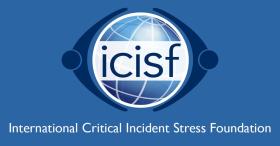
Critical Incident Stress Management: Individual Crisis Intervention and Peer Support and Group Crisis Intervention
This program is designed to present the core elements of a comprehensive, systematic, and multi-component crisis intervention curriculum. The three-day course prepares participants to understand a wide range of crisis intervention services including Group and Individual Crisis Intervention techniques. The course provides all participants in the class the information needed to intervene with anyone affected by a sentinel event in the public, private, or school setting. Also, the need for appropriate follow-up services and referrals when necessary is described. Considerable evidence gathered to date strongly supports the multi-component crisis intervention strategy, which is discussed in this course.
Target Audience
The audience for this class includes emergency services, military, business/industrial, hospital, and mental health professionals, school teachers or school administrative faculty who desire to increase their abilities to utilize crisis intervention techniques.
Learning Objectives
By the end of this session, participants should be able to:
- Define stress, critical incident stress, and post-traumatic stress disorder
- List at least for fundamental principles of crisis intervention
- List the 10 basic interventions of CISM
- Define and describe in detail the CISM group processes of defusing, crisis management briefing, demobilization, and CISD debriefings
- Define and describe in detail the CISM individual process of SAFER-R
- List common critical incident stress signs and symptoms related to individuals within their care
- Demonstrate individual and group crisis intervention techniques
Price
Tuition: $440
For additional information please contact Dan Lichok, [email protected].

 Facebook
Facebook X
X LinkedIn
LinkedIn Forward
Forward